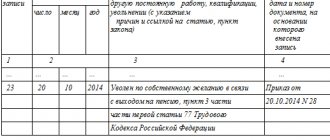Beginning of execution of the court order
Quite often, debtors learn that enforcement proceedings have been initiated against them immediately when the bailiffs seize the bank account and write off funds. At the same time, the debtor did not receive a court order or a resolution to initiate enforcement proceedings.
Court orders are decisions made by judges (magistrates or district/city courts) upon the application of creditors to recover sums of money or to recover movable property from the debtor.
Let's consider the procedure for notifying the debtor about a court order issued by the court, as well as the question - after what period is the court order issued to the claimant for forced execution.
Article 128 of the Code of Civil Procedure of the Russian Federation provides that the judge sends a copy of the court order to the debtor, who, within ten days from the date of receipt of the order, has the right to submit objections regarding its execution.
If the debtor does not submit objections to the court within the prescribed period, the judge issues to the claimant a second copy of the court order, certified by the official seal of the court, to present it for execution (Part 1 of Article 130 of the Code of Civil Procedure of the Russian Federation).
It follows that a court order is presented for execution only if a copy of the court order was served on the debtor and no objections were received from him regarding the execution of the court order within the prescribed period.
Opinion of the Supreme Court of the Russian Federation on notifying the debtor of a court order
The Plenum of the Supreme Court of the Russian Federation in paragraph 30 of Resolution No. 62 dated December 27, 2016 “On some issues of application by courts of the provisions of the Civil Procedure Code of the Russian Federation and the Arbitration Procedure Code of the Russian Federation on writ proceedings” (hereinafter referred to as the Resolution) explained that the debtor is considered to have received a copy court order if the magistrate has evidence of delivery to him of a copy of the court order sent by registered mail with acknowledgment of delivery (part one of Article 113 of the Code of Civil Procedure of the Russian Federation), as well as in the cases specified in parts two to four of Article 116 of the Code of Civil Procedure of the Russian Federation.
Cancellation of a court order
Assistance in drawing up an application to cancel a court order.
Filling out a form to receive an application to cancel a court order. More details
The beginning of the ten-day period for the debtor to file objections regarding the execution of the court order is calculated from the day the debtor receives a copy of the court order on paper or from the date of expiration of the storage period for judicial mail correspondence established by postal organizations (for example, the Federal State Unitary Enterprise "Russian Post" has established a seven-day storage period for postal mail). correspondence).
The storage period for postal correspondence is calculated from the date of arrival of the judicial mail at the place of delivery - the post office of the location (residence) of the debtor. The date of arrival of the judicial postal item at the place of delivery is determined by the postmark of the postal item or by the tracking system for registered postal correspondence on the official website of the Federal State Unitary Enterprise "Russian Post". The shipment tracking report is printed and attached to the materials of the writ proceedings (clause 32 of the Resolution).
Beginning of the ten-day period for filing objections to the court order
A court order can be issued by the court to the claimant (creditor) only after the expiration of a ten-day period, which begins to count from the moment:
- delivery of a court order to the debtor, while the court has reliable information about the debtor’s receipt of the court order;
- expiration of the storage period for judicial mail at a postal facility.
Cancellation of a court order
If a court order has been issued against you, but you want to challenge the decision within the deadline allowed by law? Are you concerned about the question of how to accurately, quickly and cheaply file an application for cancellation (objection to the execution of a court order in accordance with the Code of Civil Procedure of the Russian Federation)? With the advent of the new online service, this has become very easy: fill out the form remotely.
A document prepared using the service will allow you to cancel the court order and stop the collection. Correctness in filling out the application excludes the possibility of the court refusing to cancel the court order.
Bar Association "Legal Defense"
- home
- Articles
- Deadline for fulfilling the obligation
calculation procedure and its significance According to the current civil legislation, the fulfillment of the obligation must be carried out within the prescribed period.
The latter, in turn, can be determined both by agreement of the parties and by the law that carries out the legal regulation of certain social relations. Need help solving legal problems? Contact us - support for your interests in court is guaranteed. Call by phone. There is no fundamental difference between them in relation to the purposes of fulfilling the obligation. Moreover, based on the literal interpretation of the provisions of Part 1 of Art. 314 of the Civil Code of the Russian Federation, the deadline for fulfilling an obligation is a kind of abstract legal construct that does not have a sufficiently clear definition. The content of the deadline for fulfilling an obligation also includes a certain calendar date on which the latter must be fulfilled and a certain time period after which the obligation is assumed to be fulfilled. However, despite this circumstance, the deadline for fulfilling the obligation does not lose its main meaning - determining the time during which the mutual redistribution of rights and obligations between its participants occurs. As already noted, the deadline for fulfilling an obligation can be determined by law (legal deadlines) or by contract (contractual deadlines). The basis for establishing the duration of the deadline for fulfilling the obligation for the purposes of its fulfillment is not of fundamental importance. The essential point will be such criteria as the initial moment of expiration and the time of its end. Practical experience shows that not in all cases the date of conclusion of the contract is the starting point for determining the deadline for fulfilling the obligation. In particular, by virtue of a direct legislative clause or upon reaching an appropriate agreement between the parties to the obligation, the beginning of the period for fulfilling the latter may be determined by a different time interval. The latter may be a specific calendar date or the occurrence of a certain event. In particular, the execution of a construction contract and the total duration of fulfillment of the obligation can be made dependent on the moment the customer transfers the necessary documents and materials to the contractor. All these nuances must be provided for and clearly reflected in the content of the concluded agreement. The purpose of proving compliance with the established requirements accompanying the fulfillment of an obligation within the established time frame is their proper documentary reflection, for example, drawing up acts of acceptance and transfer of items and documents, signing acts of work performed, sending notices, claims or other correspondence to the counterparty, etc. The next point that you should pay attention to when calculating the deadlines for fulfilling an obligation is the procedure for determining them by law or contract. In the event that the deadline for fulfilling an obligation is determined by a specific calendar date, the latter must be used before 24 hours of a certain date. Starting from the next day, the obligation is considered unfulfilled with negative consequences applied to the party that violated it. When calculating the period by a certain period, the procedure for calculating the allotted period of time plays an essential role in meeting the deadlines for fulfilling the obligation. Firstly, it should be borne in mind that the starting point for calculating the deadlines in the cases under consideration is the day following the date determined as the starting point for the fulfillment of the obligation.
Secondly, the total length of the period allotted for the proper fulfillment of the obligation is considered no less important. The duration of the period can be determined by a calendar period (week, month, quarter, half a year, year, etc.) or the number of days. In the latter case, a certain specification is necessary whether the latter are calendar or working. The difference between the latter is captured in their name. The end of the deadline is determined according to the rule mentioned above, but it should be borne in mind that in relation to deadlines established by month, year or other time period, the last day of the period falls on the last day of the corresponding month of the corresponding year. However, it should also be taken into account that judicial practice, in relation to the procedure for calculating deadlines, has proposed its own calculation rules. So, based on the content of the latter, when calculating the period established by month, thirty calendar days should be taken into account, for a year - three hundred and sixty. The above rules for calculating the deadlines for fulfilling an obligation are basic. Their application in each specific case is predetermined by the specific content of the obligation, as well as the burden that the period of its fulfillment bears. In particular, being an essential condition of certain contracts, the period not reflected in the content of the latter predetermines the possibility of recognizing it as not concluded. It should also be borne in mind that the deadlines for fulfilling an obligation are not always clearly agreed upon by its participants. In such cases, the legislator proceeds from the possibility of fulfilling the obligation within a reasonable time. The category of the latter has already been covered on the pages of this site. Do you need a good lawyer? Our lawyers will help you defend your interests in court. Call: (495) 790-54-47. Petrov Mikhail Igorevich © IOO “Legal Protection”
Clerk's cheat sheet
|
| Document execution deadline |
Documents received by the organization have deadlines.
A document with a deadline must be put under control. Control of deadlines for document execution is carried out by the office management service. Deadlines for the execution of documents in an organization are established and fixed by regulations (Instructions for office work).
Write down all possible deadline options in the Instructions and you will avoid many work conflicts.
Control over the execution of documents: what you need to know"
What determines the deadline for the execution of a document?
- resolution of the manager;
— the text of the document;
- default.
By default, this is the typical deadline for execution of the document. According to GOST R 7.0.8–2013, the typical deadline for the execution of a document is the deadline established by the regulatory legal act. The resolution and text may contain an individual deadline for the execution of the document , which, in accordance with the same GOST, is defined as the deadline for the execution of the document established by the organizational and administrative document (order, instruction) or the resolution of the manager (deputy).
The list of documents that require setting deadlines and control depends on the specifics of the organization’s work. It is imperative to monitor requests from government and judicial authorities and citizens’ appeals. Citizens' appeals have a standard execution period of 30 days, determined by Law No. 59-FZ
Rules for deadlines for execution of documents in office work
- The deadlines for execution of documents are calculated in calendar days.
- The term of the document begins to run from the date of receipt of the document (from third-party organizations) or from the date of signing (documents of the organization itself - order, instruction, protocol).
- The default period is usually 30 days.
- A document received by the organization is communicated to the executors on the day of receipt or the next day.
- Notes may be placed on documents. If the document is marked “Urgent” or “Immediately”, then the document is valid for 3 days. If the document is marked “Promptly”, then 10 days.
- If the deadline is “within... days,” then the day of affixing this resolution is considered the first day of the deadline.
Prepare a report within 5 days.
06/16/2015A. V. Ivanov
Thus, the first day of execution of the order is 06/16/2015
- If the last day of the deadline falls on a weekend, then the last day of execution is the last working day before the weekend.
Request documents before 08/02/201507/15/2015 B.V. Karev
Thus, the last day for execution of the order is 07/31/2015
- If a specific date is indicated in the deadline (Deadline - 07/25/2015), then the deadline for executing the order is this day before the end of the working day.
Deadline: 07/25/2015
07/16/2015E. V. Tishchenko
Thus, the deadline for executing the order is 18.00 07/25/2015
- If the date is preceded by the preposition “by”, then the last day of execution of the deadline is this date.
Information must be submitted by 03/01/2015
Thus, information should be submitted by the end of the working day 03/01/2015
The meaning of the preposition “by” in Russian - Explanatory dictionary of the Russian language edited by S. I. Ozhegov, N. Yu. Shvedova>>
- If the date is preceded by the preposition “until,” then the last day for execution of the order is the day preceding the specified date.
Please report on the completion of the task by May 15, 2015Thus, the order should be executed on 05/14/2015
The meaning of the preposition “do” in Russian - Explanatory dictionary of the Russian language edited by S. I. Ozhegov, N. Yu. Shvedova>>
- If “no later” is indicated before the date, then the last day for execution of the order is the specified date.
Prepare materials for the meeting no later than April 15, 2015
Thus, the last day for execution of the order is 04/15/2015.
extend the deadline for a document using a memo addressed to the manager (deputy) who imposed the resolution. The memo indicates the reasons for the postponement and is signed by the head of the department.
If the deadline for the document is violated , then an explanatory note is written addressed to the manager/deputy. The decision on the punishment is made by management and the head of the department.
Manage your time without breaking deadlines!








